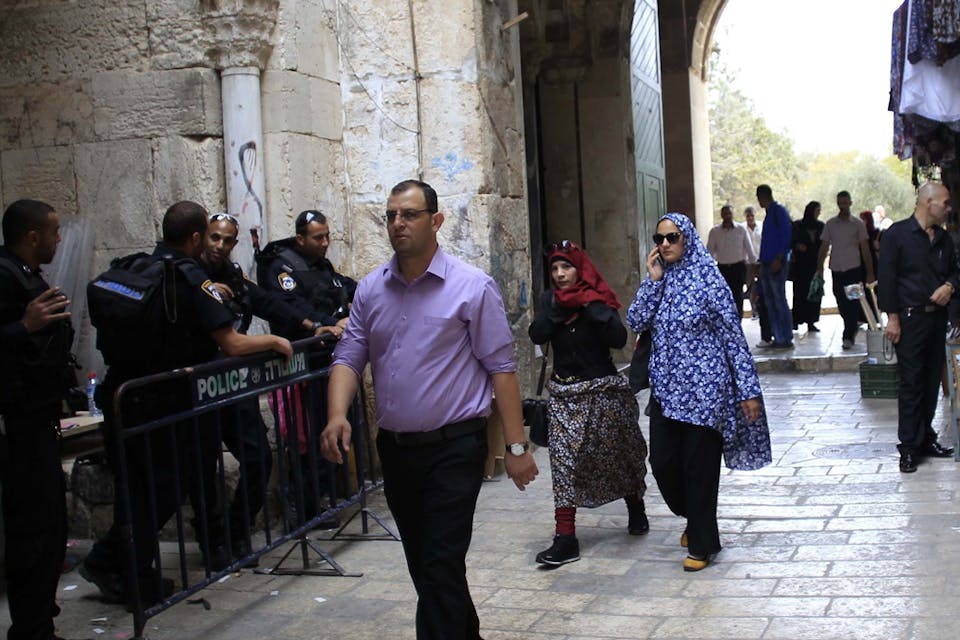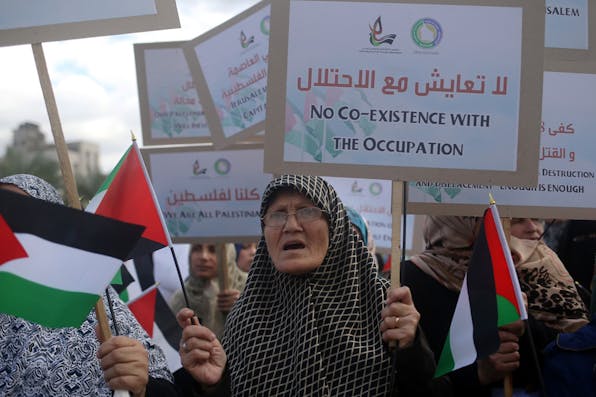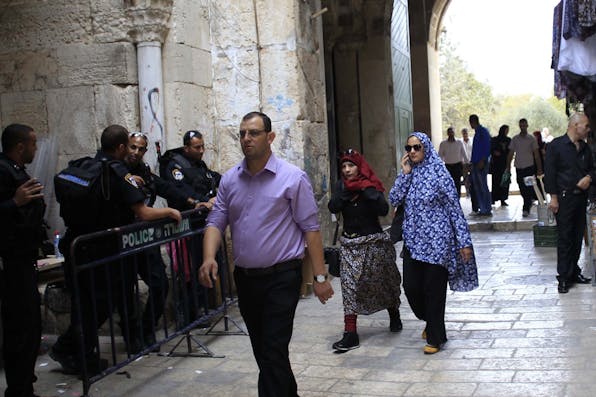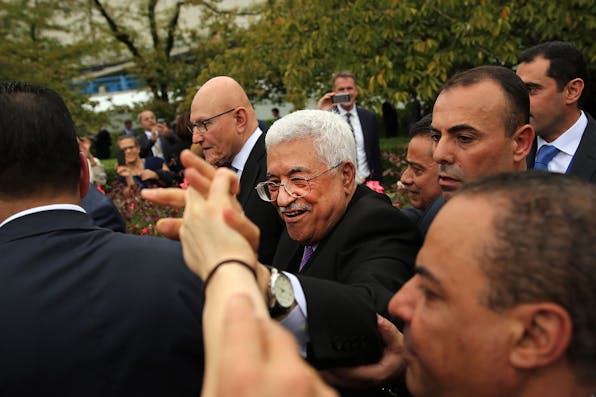
November 19, 2015
Compromise for Now, the End of Israel for Later
That's what Palestinians say they want. What does this bifurcated attitude mean for policymakers?
Against the bloody background of stabbings and other deadly violence in Israel and the West Bank, Daniel Polisar’s thorough analysis of Palestinian polling data, “What Do Palestinians Want?,” makes essential reading for anyone interested in more than just the grim daily headlines. His central point—that the majority of Palestinians in the West Bank and Gaza have long supported “armed struggle” against Israelis—is not only accurate but a fact regularly distorted by media focus on the seemingly “individual” nature of today’s terrorist incidents. Polisar’s conclusions, moreover, are well grounded in exhaustive research into the mounds of survey data that have piled up ever since the first Oslo accords of 1993—which is when I myself started to work with Palestinian colleagues in launching the first scientific polls of the Palestinian population.
Rather than repeating Polisar’s findings, I’d like to begin with a few observations and quibbles, then introduce some recent findings, mainly from a poll I conducted in June, and conclude with what I hope to see in Polisar’s larger study-in-progress on this subject.
First, quibbles. On the basis of survey results and other data, I believe that the reality is in some ways better than Polisar judges and in some ways worse. Better: there is rich evidence that the Palestinian public, when presented with a “package deal,” is considerably more inclined to accept compromise with Israel than when issues are viewed in isolation. This applies even to the most contentious issues like the future of Jerusalem, the “right of return,” or recognition of Israel as a Jewish state. Worse: Polisar accepts the notion that most Palestinians support violence in spite of Mahmoud Abbas’s steady and repeated opposition to it. In fact, Abbas and other Palestinian leaders consistently send a mixed message on this key issue, opposing violence in the abstract while continuing to glorify individual terrorists in official statements, ceremonies, and the media.
Responses to November ’s Essay

November 2015
How Palestinians’ Vision of Israel Serves Palestinian Needs
By Haviv Rettig Gur
November 2015
The Core Beliefs behind Palestinian Public Opinion
By Amir Taheri
November 2015
Compromise for Now, the End of Israel for Later
By David Pollock
November 2015
Why Do Palestinians Believe What They Believe?
By Daniel Polisar